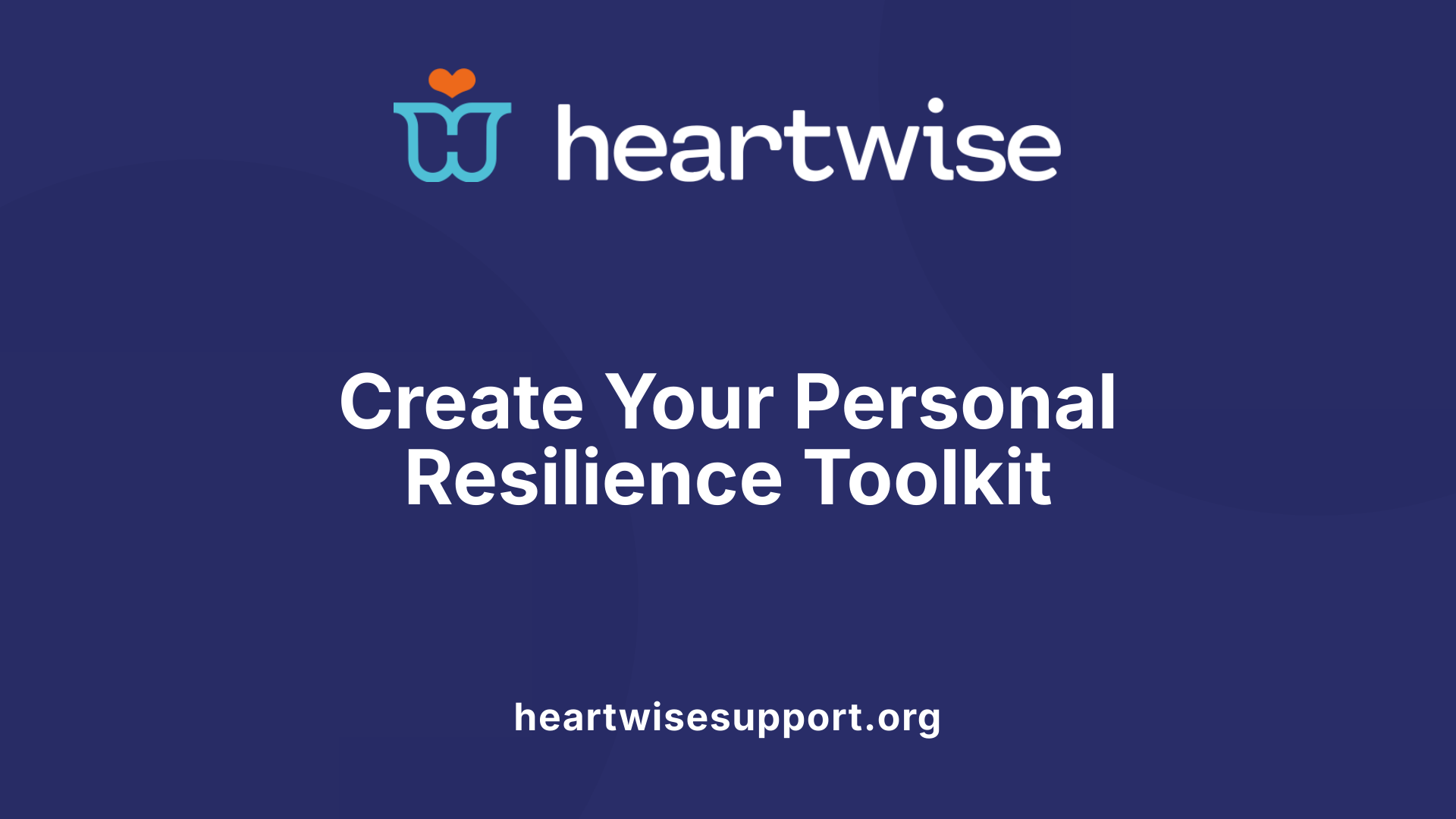Understanding the Importance of Coping Skills in Mental Health
Coping skills are vital strategies, techniques, and behaviors that individuals use to manage stress, intense emotions, and life's challenges. These skills not only help mitigate immediate distress but also contribute significantly to long-term mental health and resilience. Developing and reinforcing effective coping mechanisms is an essential part of mental health therapy, offering individuals tools to navigate adversity, improve emotional regulation, and foster healthier relationships.
The Role of Coping Skills in Mental Well-Being

What are coping skills and what do they include?
Coping skills are strategies, techniques, and behaviors that individuals use to handle stress, emotions, and challenges effectively. They encompass a wide array of actions such as practicing mindfulness and meditation, engaging in physical activity, journaling, utilizing social support, participating in creative outlets, and problem-solving. These skills aim to regulate emotional responses, manage external stressors, and prevent feelings from becoming overwhelming.
Developing a diverse toolkit of coping mechanisms allows individuals to adapt to various situations. Strengths-based approaches promote resilience and facilitate recovery from setbacks by promoting behavior that reduces distress and enhances emotional stability.
How do effective coping skills help prevent stress from building up?
When coping skills are employed consistently, they serve as preventive measures against the accumulation of stress. Regular practice of relaxation techniques like deep breathing, progressive muscle relaxation, and grounding exercises such as the '5 Senses' technique can calm the nervous system during moments of crisis.
By proactively managing stress, individuals decrease the likelihood of experiencing chronic stress, which can lead to physical symptoms like headaches, stomach issues, or skin rashes. Establishing healthy routines—such as maintaining a sleep schedule, engaging in physical exercise, and limiting exposure to negative media—further supports stress prevention.
How are coping skills connected to emotional regulation?
Coping skills are integral to emotional regulation, enabling individuals to accept and understand their feelings instead of suppressing or avoiding them. Practices such as emotion awareness and cognitive reframing help in recognizing emotional triggers and responding thoughtfully.
Techniques like radical acceptance, where one fully accepts circumstances beyond control, conserve emotional energy and reduce frustration. Engaging in calming activities like deep breathing or visualization fosters a sense of control over emotional responses.
Developing these skills supports long-term emotional balance by promoting healthy reactions, reducing impulsivity, and preventing mood swings commonly associated with psychological distress.
What are the benefits of healthy coping skills for mental health and relationships?
Healthy coping strategies contribute significantly to mental well-being by reducing symptoms of anxiety, depression, post-traumatic stress disorder, and other mental health issues. They foster emotional stability, improve self-awareness, and promote resilience, allowing individuals to bounce back from adverse experiences.
Moreover, effective coping skills enhance relationships by improving communication, empathy, and emotional connection. For example, practicing active listening or sharing feelings openly can strengthen social bonds.
Engaging in supportive activities like seeking social support or participating in group therapy can provide validation and shared understanding, further nurturing healthy interactions.
Furthermore, cultivating positive coping habits through therapy and self-care leads to better overall life satisfaction, a sense of mastery over challenges, and a more optimistic outlook.
| Aspect | Description | Additional Details |
|---|---|---|
| Types of coping strategies | Problem-focused, emotion-focused, meaning-focused, social support | Different strategies tackle various aspects of stress and emotion management |
| Common healthy coping skills | Mindfulness, deep breathing, journaling, physical activity, social support | Promote mental flexibility and emotional balance |
| Maladaptive coping mechanisms | Avoidance, denial, substance abuse, emotional suppression | Associated with poorer mental health outcomes |
| Impact of therapy | Helps develop personalized coping strategies, improve emotional regulation | Integrates skills like cognitive restructuring and relaxation techniques |
| Building resilience | Practicing coping skills regularly, fostering optimism, strong support networks | Enhances capacity to recover from setbacks |
Understanding and practicing effective coping skills are fundamental to maintaining mental health. They prevent stress from accumulating, support emotional regulation, and foster resilience—all crucial elements for overall well-being and healthy relationships. Continual development of these strategies, supported by therapeutic guidance and consistent effort, can lead to a more balanced, fulfilling life.
Therapeutic Techniques for Developing and Enhancing Coping Skills

How does cognitive behavioral therapy (CBT) enhance coping skills?
Cognitive Behavioral Therapy (CBT) plays a vital role in strengthening coping skills by providing individuals with effective, practical methods to handle emotional and psychological stress. Through CBT, clients learn to identify negative thought patterns and replace them with healthier perspectives, a process known as cognitive restructuring. Self-monitoring techniques, such as journaling or mood tracking, help individuals recognize patterns and triggers that lead to distress. Behavioral activation encourages engagement in pleasurable activities that boost mood and motivation.
Additionally, CBT incorporates relaxation techniques like diaphragmatic breathing and progressive muscle relaxation to reduce physiological stress responses. Setting realistic, manageable goals helps in breaking down overwhelming problems into smaller, solvable steps, decreasing feelings of helplessness. Regular homework assignments reinforce learned skills, promote consistent practice, and enable adaptation of these techniques to everyday situations. Over time, these structured approaches foster resilience, emotional regulation, and a greater capacity to manage diverse stressors, leading to improved mental health outcomes.
What practical stress management techniques are supported by therapy?
Therapy endorses several evidence-based methods to manage stress effectively. Deep breathing exercises, especially techniques like the '5 3 7' method, are commonly taught to help calm anxiety by slowing the nervous system's response. Progressive muscle relaxation involves tensing and relaxing muscle groups systematically, reducing physical tension linked to stress. Visualization or imagery exercises help people create calming mental images, providing quick relief during high-stress moments.
Challenging irrational thoughts through cognitive restructuring forms a core part of therapy, assisting individuals in perceiving stressors differently and reducing emotional overwhelm. Grounding exercises, such as focusing on the five senses—sight, sound, touch, smell, and taste—are especially useful during crises, helping a person stay present and avoid spiraling into panic.
In addition to these techniques, mindfulness practices—like meditation and body scan exercises—enable individuals to observe their thoughts and feelings without judgment, fostering emotional stability. Engaging in enjoyable hobbies, regular physical activity, and establishing routines are also recommended to build resilience and reduce overall stress levels. Many of these methods are introduced gradually, often with specific homework assignments designed to facilitate daily integration. Consistent application of these techniques helps individuals develop a personalized toolkit for mental wellness, equipping them to face life's challenges with increased confidence and calmness.
Building a Toolkit of Healthy Coping Strategies

What are effective coping strategies supported by therapy?
Therapy provides a foundation for developing effective coping strategies that help individuals manage stress, anxiety, and emotional challenges. Cognitive-behavioral techniques like mental and cognitive reframing are often emphasized. These methods involve challenging negative thought patterns and replacing them with healthier perspectives, which reduces emotional distress.
Mindfulness practices, such as meditation and deep breathing exercises like the '5 3 7' technique, are also commonly integrated into therapy. These techniques help calm the nervous system and create a sense of present-moment awareness.
Grounding exercises, such as focusing on sensory experiences using the '5 Senses' method, allow individuals to reconnect with their environment during moments of crisis. Additionally, emotional regulation tools like radical acceptance—embracing reality without resistance—and opposite-to-emotion thinking—acting in opposition to an immediate feeling—are effective for managing difficult emotions.
Engaging in self-care activities like exercise, creative pursuits, and maintaining social connections significantly contribute to building resilience. Therapy helps personalize these methods, ensuring they align with individual needs. Overall, these approaches foster healthier responses to stressors, promoting emotional wellbeing and mental health.
How can developing a personal toolkit of coping mechanisms improve mental health?
Creating a set of personalized coping strategies allows individuals to respond flexibly to various stressful situations. This toolkit builds resilience by offering multiple options, so when one strategy isn't effective, others can be employed.
Regularly practicing and reinforcing these techniques helps them become automatic reactions. For example, journaling can help clarify thoughts, physical activity can alleviate physiological tension, and grounding exercises can reduce feelings of overwhelm.
Tailoring strategies to individual circumstances ensures they are practical and sustainable. A person might find that talking with trusted friends or engaging in community support groups offers valuable emotional reinforcement.
Therapy guides individuals in identifying their unique stress triggers and selecting coping mechanisms that suit their lifestyles. Over time, this process enhances emotional regulation, lessens reactionary responses, and bolsters overall mental health.
By maintaining a diverse set of skills—such as mindfulness, problem-solving, and social engagement—people can navigate challenges more effectively, leading to reduced symptoms of anxiety and depression, and fostering stronger emotional resilience.
Examples of positive coping strategies include journaling, social support, physical activity, and grounding exercises
Engaging in journaling helps process emotions, organize thoughts, and recognize patterns that may contribute to stress or depression.
Building social support by sharing feelings with trusted friends, family, or support groups provides validation, advice, and a sense of belonging.
Regular physical activity, such as walking, yoga, or strength training, releases endorphins, reduces physiological tension, and improves mood.
Grounding exercises, like focusing on sensory inputs or practicing mindfulness, help anchor individuals in the present moment, especially during anxiety or panic attacks.
Other effective strategies include engaging in hobbies, practicing gratitude, setting boundaries, and developing routines to promote stability and emotional balance.
The importance of regular practice and reinforcement of coping skills
Building effective coping skills requires consistent effort. Practicing techniques like deep breathing, meditation, and journaling regularly ensures they become second nature.
Reinforcement through repetition helps strengthen neural pathways associated with healthy responses, making coping strategies more accessible during stressful situations.
Therapy sessions often incorporate homework, such as daily journaling or mindfulness exercises, to encourage ongoing practice.
Over time, these habits contribute to greater emotional resilience, reduced reactivity, and better management of mental health symptoms.
Adapting coping strategies to individual needs and circumstances
Not all coping methods work equally for everyone. Personal circumstances, cultural background, and individual preferences influence which strategies are most effective.
For example, someone with physical limitations may prefer mental reframing and mindfulness over high-impact exercise.
Therapy supports customizing coping techniques to fit lifestyle, values, and specific stressors, increasing their sustainability.
Flexible coping plans allow individuals to adapt as circumstances change—such as shifting from social support to solitary reflection during stressful periods.
This personalized approach fosters a sense of empowerment and enhances the likelihood of long-term adherence.
How therapy facilitates the development of personalized coping tools
Therapists help clients explore diverse coping options and identify those best suited to their personalities and situations.
Through guided exercises, such as cognitive restructuring and emotional regulation training, individuals learn to recognize their emotional triggers and response patterns.
Therapy sessions often include skill-building activities, like journaling or behavioral experiments, to practice new strategies.
By providing feedback, encouragement, and accountability, therapists assist clients in integrating these coping methods into daily routines.
Over time, this process leads to a personalized toolkit—comprising techniques that are effective, manageable, and aligned with individual goals.
The role of peer support and community resources
Sharing experiences through peer support groups or community organizations enhances coping efforts. Connecting with others facing similar challenges fosters understanding, validation, and collective problem-solving.
Groups can provide advice on effective strategies, encouragement, and motivation to practice coping skills.
Community resources, such as workshops, classes, and online platforms, offer opportunities to learn new techniques and reinforce existing ones.
Supporting networks strengthen resilience, reduce feelings of isolation, and promote sustained mental wellness.
| Aspect | Description | Example Resources |
|---|---|---|
| Techniques | Mindfulness, grounding, emotional regulation | Meditation apps, support groups |
| Practice | Regular engagement, tailoring to needs | Daily journaling, exercise routines |
| Support | Peer groups, community programs | Local community centers, online forums |
| Therapy | Guided skill development | Counseling services, therapy apps |
Fostering a culture of ongoing learning, practice, and community engagement enhances the ability to cope healthily and builds long-lasting resilience.
The Role of Support Systems and Professional Help in Coping Skill Development

How does cognitive behavioral therapy (CBT) enhance coping skills?
Cognitive Behavioral Therapy (CBT) plays a pivotal role in strengthening an individual’s ability to cope with stress and emotional challenges. By teaching practical techniques, CBT helps individuals manage their thoughts, feelings, and behaviors more effectively. One of its core methods is self-monitoring, where people learn to recognize their patterns and triggers, making them more aware of their emotional responses.
CBT also employs relaxation techniques such as diaphragmatic breathing and progressive muscle relaxation. These strategies help reduce physical stress and calm the nervous system, preventing escalation of anxiety or tension. Behavioral activation encourages engagement in positive, enjoyable activities, which boosts mood and fosters resilience.
A key component of CBT is cognitive restructuring—challenging and replacing negative or distorted thoughts with healthier perspectives. This cognitive shift reduces emotional distress and promotes adaptive responses. Additionally, setting manageable goals allows people to take small, attainable steps towards recovery and personal growth.
Through structured exercises, homework assignments, and real-life practice, individuals develop skills to respond more adaptively to life's stressors. Over time, these techniques build resilience, improving overall mental health and capacity to handle adversity.
Empowering Long-Term Mental Wellness
Developing and strengthening coping skills through mental health therapy is a cornerstone of emotional resilience and overall well-being. By utilizing various evidence-based techniques such as CBT, mindfulness, grounding exercises, and emotional regulation strategies, individuals can better manage stress, anxiety, and depression. The support of professional therapists, coupled with strong personal and community support networks, creates a comprehensive approach to mental health. Regular practice, personalized strategies, and ongoing education are key to maintaining these skills over time. Ultimately, fostering a proactive approach to coping not only improves immediate mental health but also lays the foundation for a resilient, balanced, and fulfilling life.
References
- The Essential Role of Coping Skills in Mental Health
- Self-Help Techniques for Coping with Mental Illness | NAMI
- Coping Mechanisms - StatPearls - NCBI Bookshelf
- Managing Stress | Mental Health - CDC
- Importance of Healthy Coping Mechanisms | Mental Health | MA
- Coping Mechanisms | Open Path Psychotherapy Collective
- How to Cope With Mental Health, Drug, and Alcohol Issues - SAMHSA
- CBT Coping Skills and Strategies - Verywell Mind
- Mental Health Minute: 99 Positive Coping Skills - Family Health Clinic
- Mental Health Coping Skills for Stress, Anger, and Depression











